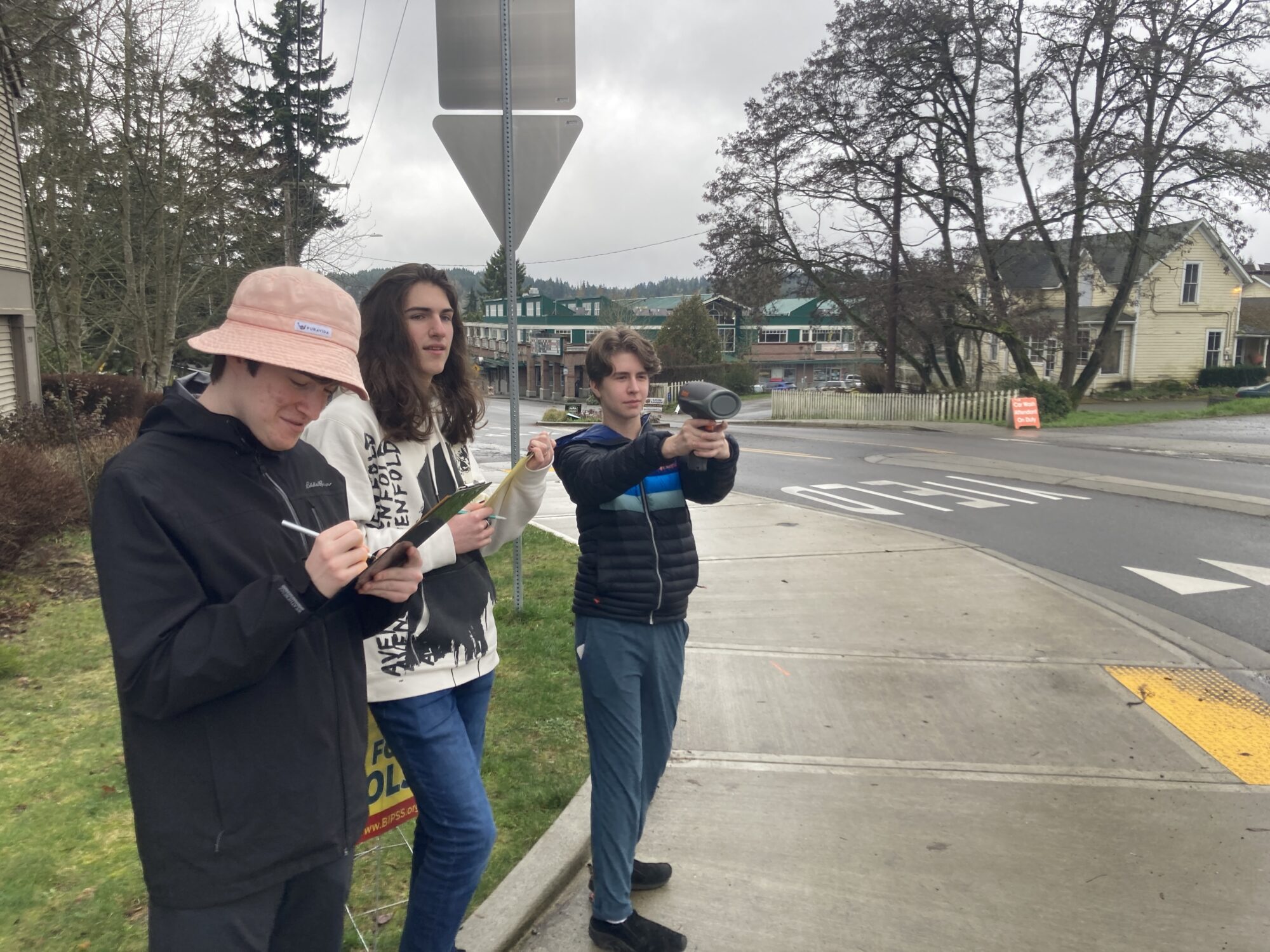Hyla Stories
Urban Planning Class: Exploring Local Issues through the WA State Growth Management Act

By James Rufo-Hill, upper school Science teacher.
“Should Winslow growth go up or out?” That question ran above the fold in a recent issue of our local paper, the Bainbridge Island Review. At the same time, debate raged on a local Facebook group over whether a local business should sacrifice some of its property for bicycle infrastructure. Perhaps you scrolled through that thread while sitting in roundabout construction traffic along SR 305? Or maybe you just looked out your window and wondered whether or not they really needed to cut down all those trees? Those are but a few of the topics that upper school students have been thinking about in the Urban Planning Aperture class.
The first unit of spring semester takes a look at comprehensive planning. Back in 1990, in response to increasing population and urban sprawl, Washington State enacted the Growth Management Act. The law required, among other things, that cities enact comprehensive plans to help establish a long-term community vision and control growth. Plans must include land use, housing, capital facilities, utilities, transportation and economic development elements. Students have been reviewing individual elements of Bainbridge’s “comp plan” one class at a time. Once we’ve looked at the whole document, students will select an element that speaks to them, summarize it in their own words, and then eventually propose an amendment.
To guide students through the learning process, we’ve taken to the streets. Last week, the class stood on the corner of Madison and Wyatt with clipboards and a radar gun gleefully recorded observations including number and type of vehicles, whether traffic laws were obeyed, pedestrian and bicycle interactions, and even waves from surprised parents! Collected data will be analyzed and compared to City transportation planning goals, and may facilitate anything from a public records request to a simple policy recommendation. The hands-on, real-world process will be repeated throughout the semester as different students more closely examine planning for water resources, economic development, and housing.
Beyond developing critical thinking and analytical skills, students will get a chance to actively participate in democracy. As their teacher, I appreciate the student’s eagerness and desire to impact a large and sometimes frustrating system that affects them everyday, whether they are navigating early morning traffic, a part-time job, or homework. As a community member, I’m grateful for their willingness to collaborate and be agents of positive change.
~James Rufo-Hill, Hyla upper school teacher
